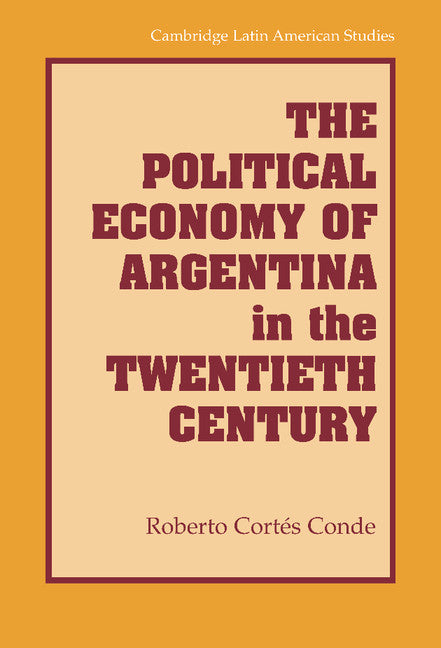Freshly Printed - allow 6 days lead
Couldn't load pickup availability
The Political Economy of Argentina in the Twentieth Century
This book describes and explains the decline of the Argentine economy in the twentieth century.
Roberto Cortés Conde (Author)
9780521882323, Cambridge University Press
Hardback, published 22 December 2008
406 pages
22.9 x 15.2 x 2.7 cm, 0.77 kg
'… this is very much the work of a skilled historian … The book's goal is to explain why Argentina failed to sustain its position as a wealthy country, which it had achieved in the first decades of the twentieth century … It will be difficult for anyone interested in Argentina's economic decline not to take this work extremely seriously …' Latin American Research Review
In this book, Roberto Cortés Conde describes and explains the decline of the Argentine economy in the twentieth century, its evolution, and its consequences. At the beginning of the century, the economy grew at a sustained rate, a modern transport system united the country, a massive influx of immigrants populated the land, and education expanded, leading to a dramatic fall in illiteracy. However, by the second half of the century, growth not only stalled, but a dramatic reversal occurred, and the perspectives in the median and long term turned negative, and growth eventually collapsed. This work of historical analysis defines the most important problems faced by the Argentine economy. Some of these problems were fundamental, while others occurred without being properly considered, but in their entirety, Cortés Conde demonstrates how they had a deleterious effect on the country.
1. Period of rapid economic expansion: 1880–1914
2. From World War I to the Great Depression of 1930
3. From the 1930 financial crisis to World War II
4. The political economy of Peronism
5. A divided society: 1955–73
6. The long decline.
Subject Areas: Hispanic & Latino studies [JFSL4], 20th century history: c 1900 to c 2000 [HBLW], History of the Americas [HBJK]


